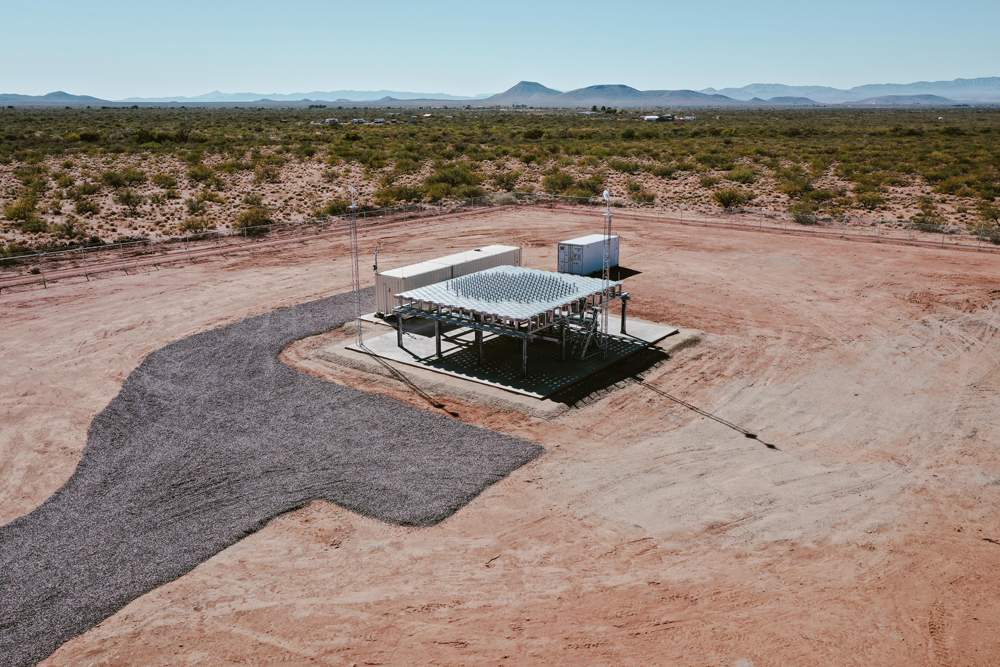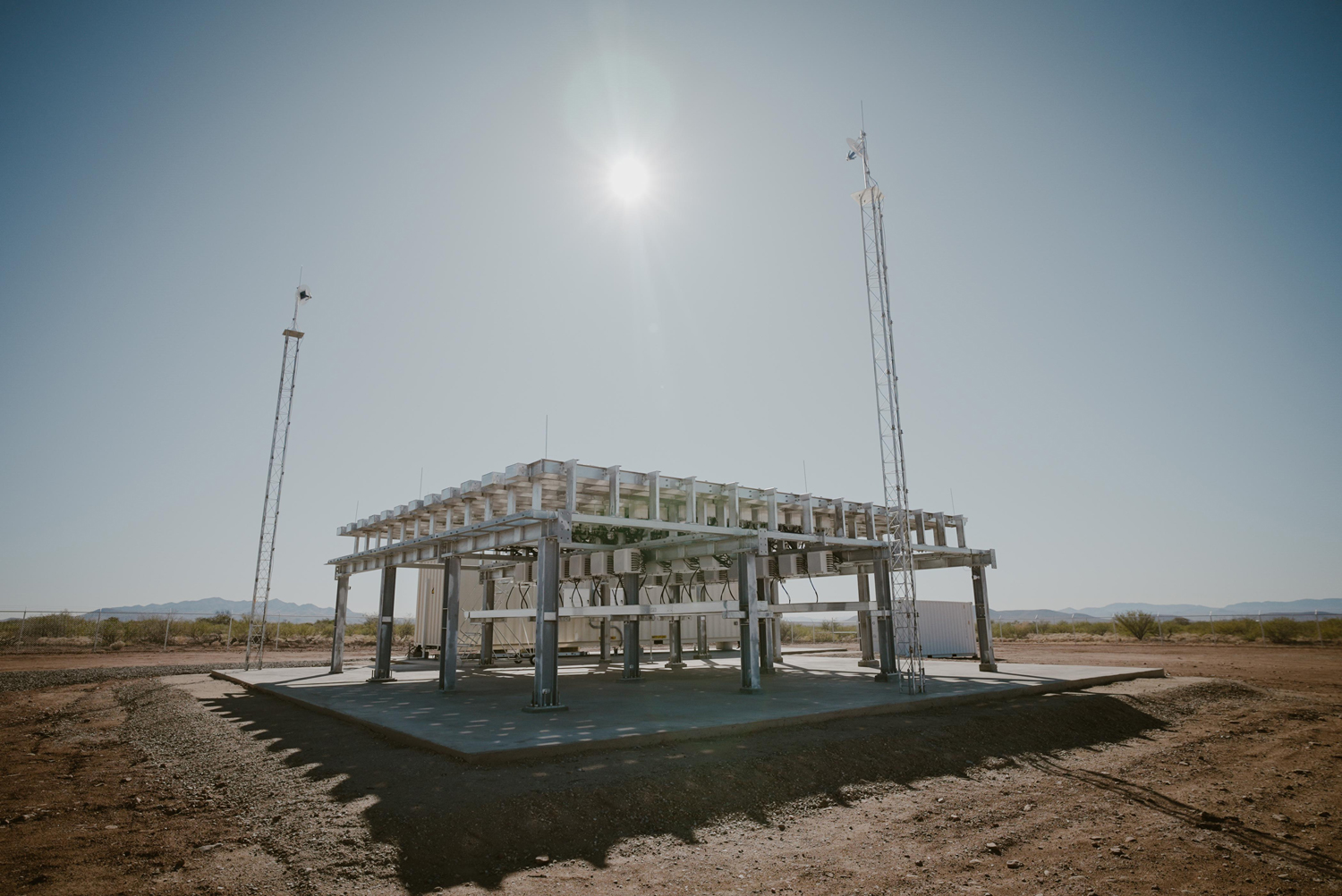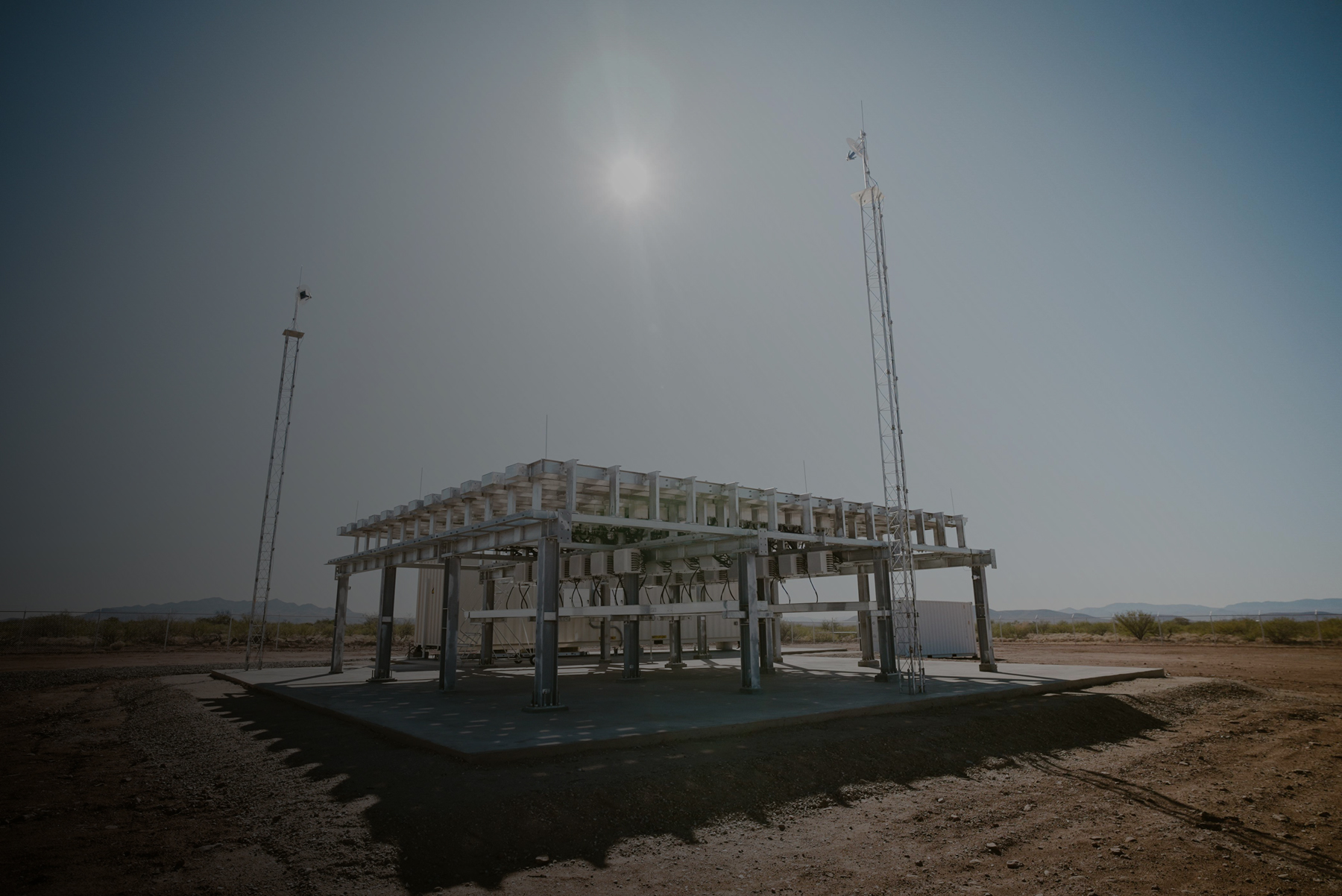MENLO PARK, CA, 10 December 2024 — LeoLabs, the world’s leading mission partner for persistent Orbital Intelligence, today announced its seventh operational radar site. Located in Arizona, United States (U.S.), this is the first installation of LeoLabs’ next-generation Ultra High Frequency (UHF) radar technology, which will unlock the advanced capabilities required to discover and respond to growing threats in space.
LeoLabs’ new UHF Planar Direct Radiating Array (DRA) radar will enhance the company’s object detection, tracking, and analytic capabilities in Low Earth Orbit (LEO) and Very Low Earth Orbit (VLEO) by integrating with its existing global radar network. The new 3D pulse Doppler radar enables scanning in two dimensions for a wider field of regard.

The Arizona radar site will serve as a testbed for advanced capabilities, including maintaining custody of highly maneuverable space objects, detecting non-cooperative launch activity, and tracking objects in VLEO and those nearing re-entry. This is also an initial step in LeoLabs’ development of capabilities to potentially detect and track missiles and hypersonic glide vehicles.
The UHF Planar DRA radar was partially funded by a 2023 Direct to Phase II Small Business Innovation Research (SBIR) award from AFWERX to support U.S. Space Force requirements. Constructed in less than five months, the Arizona site is already tracking over 9,500 objects in LEO and is streaming orbital data on space-based threats to LeoLabs customers.
“This rapidly fielded radar technology will play an important role in how LeoLabs delivers on our vision to be the leading mission partner for persistent Orbital Intelligence that preserves the U.S. and Allied advantage in space,” said LeoLabs CEO Tony Frazier. “We are excited about the advanced Space Domain Awareness capabilities it will offer to our global defense and intelligence customers. This marks a significant milestone in our continued efforts to ensure a safe, secure space environment and we are grateful to the U.S. Space Force for supporting its development.”

LeoLabs plans to leverage the UHF Planar DRA radar’s modular, cost-efficient design to expand its size and increase its sensitivity to support a wide variety of Space Domain Awareness and Space Traffic Management missions. The company is pursuing opportunities to rapidly deploy the radar globally to fill critical gaps in orbital coverage for its customers.
LeoLabs Global Radar Network currently consists of 11 operational radars across seven sites that cover the Northern and Southern Hemispheres as well as Equatorial regions. Additional sites are in various stages of development. This includes fixed and mobile installations of the company’s next-generation S-band DRA radar technology unveiled in June 2024.
View press release on PR Newswire.
LeoLabs Press Contact:
Kristin Cody
E: pr@leolabs.space
